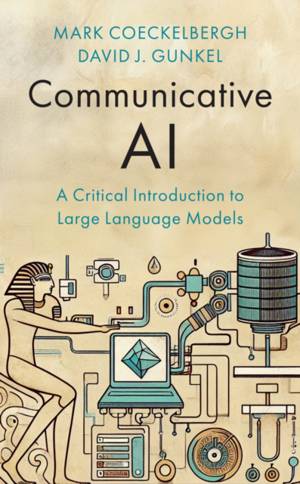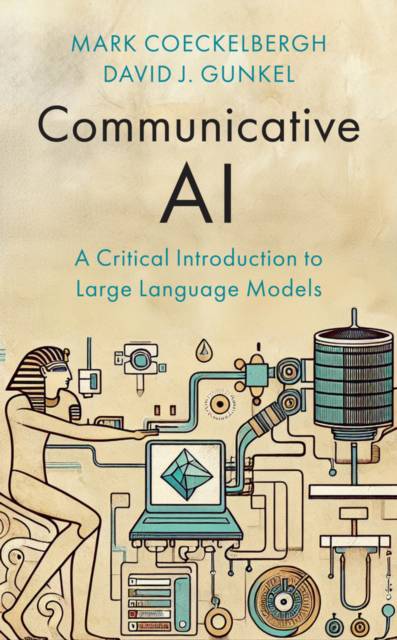
- Afhalen na 1 uur in een winkel met voorraad
- Gratis thuislevering in België vanaf € 30
- Ruim aanbod met 7 miljoen producten
- Afhalen na 1 uur in een winkel met voorraad
- Gratis thuislevering in België vanaf € 30
- Ruim aanbod met 7 miljoen producten
Zoeken
Communicative AI
A Critical Introduction to Large Language Models
Mark Coeckelbergh, David J Gunkel
Paperback | Engels
€ 27,95
+ 55 punten
Uitvoering
Omschrijving
Large Language Models (LLMs), like OpenAI's ChatGPT and Google's LaMDA, are not only the most disruptive and controversial technologies of our time, but also offer an unprecedented opportunity to examine human cognition and philosophically question the very nature of language, communication, and intelligence. What is consciousness? What is language? Are LLMs authors? Are LLMs the end of writing as we know it?
In Communicative AI, Mark Coeckelbergh and David J. Gunkel offer a critical introduction to LLMs, investigating the philosophical significance of this technology and its practical ramifications. Mobilizing resources from contemporary philosophy, history of ideas, linguistics, and communication theory, the book invites us to re-think some long-standing philosophical issues concerning language, consciousness, truth, authorship, and writing. Through a blend of theoretical analysis, accessible explanations, and practical examples, the book provides readers with a comprehensive overview of the role that this powerful new technology is already playing in our lives.
This is a must-read for students and scholars across the humanities and the social sciences, as well as for anyone intrigued by the intersection of technology, language, and human thought.
In Communicative AI, Mark Coeckelbergh and David J. Gunkel offer a critical introduction to LLMs, investigating the philosophical significance of this technology and its practical ramifications. Mobilizing resources from contemporary philosophy, history of ideas, linguistics, and communication theory, the book invites us to re-think some long-standing philosophical issues concerning language, consciousness, truth, authorship, and writing. Through a blend of theoretical analysis, accessible explanations, and practical examples, the book provides readers with a comprehensive overview of the role that this powerful new technology is already playing in our lives.
This is a must-read for students and scholars across the humanities and the social sciences, as well as for anyone intrigued by the intersection of technology, language, and human thought.
Specificaties
Betrokkenen
- Auteur(s):
- Uitgeverij:
Inhoud
- Aantal bladzijden:
- 140
- Taal:
- Engels
Eigenschappen
- Productcode (EAN):
- 9781509567607
- Verschijningsdatum:
- 8/07/2025
- Uitvoering:
- Paperback
- Formaat:
- Trade paperback (VS)
- Afmetingen:
- 141 mm x 214 mm
- Gewicht:
- 195 g

Alleen bij Standaard Boekhandel
+ 55 punten op je klantenkaart van Standaard Boekhandel
Beoordelingen
We publiceren alleen reviews die voldoen aan de voorwaarden voor reviews. Bekijk onze voorwaarden voor reviews.







